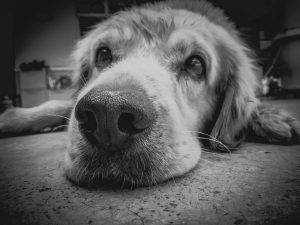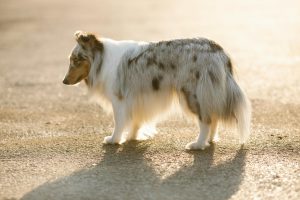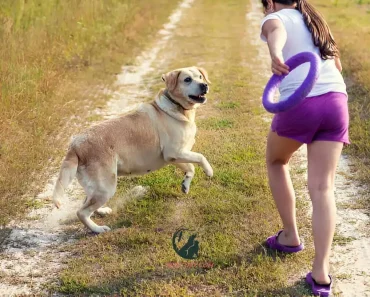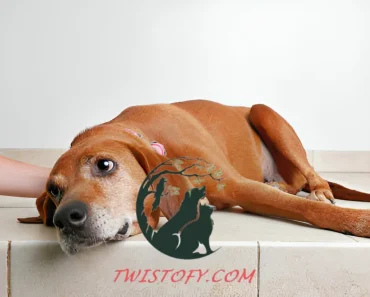
Dog
Having a Dog friend is a source of immense joy, but let’s face it, sometimes they bring along a not-so-pleasant odor. Whether it’s the result of outdoor adventures, rolling in who-knows-what, or just their natural scent, dealing with a dog’s smell is a common challenge for pet owners. But fear not! In this guide, we’ll explore effective strategies to banish that lingering doggy odor from your home and keep things smelling fresh.
Understanding the Source:
Before diving into solutions, it’s crucial to understand what causes that distinct dog smell. Factors such as skin oils, sweat, bacteria, and environmental elements can contribute to the odor. Additionally, certain breeds are more prone to odor due to their coat types and skin conditions. Identifying the root cause will help in selecting the most appropriate methods for eliminating the smell.
Regular Grooming Routine:
- Brushing: Brush your dog’s coat regularly to remove loose fur, dirt, and debris. This not only helps to keep their coat clean but also reduces shedding and prevents mats from forming. The frequency of brushing depends on your dog’s breed and coat type, but aim for at least a few times a week.
- Bathing: Bathe your dog as needed, typically every 4-6 weeks or as recommended by your veterinarian. Use a dog-specific shampoo and lukewarm water. Be sure to thoroughly rinse all soap residue from your dog’s coat to prevent skin irritation.
- Trimming Nails: Keep your dog’s nails trimmed to a comfortable length to prevent them from becoming overgrown and causing discomfort or difficulty walking. Trim nails every 1-2 months or as needed.
- Cleaning Ears: Check your dog’s ears regularly for signs of dirt, wax buildup, or infection. Use a dog-specific ear cleaner and cotton balls to gently clean the outer ear. Avoid inserting anything into the ear canal.
- Brushing Teeth: Dental hygiene is important for your dog’s overall health. Brush your dog’s teeth with a dog-specific toothbrush and toothpaste at least 2-3 times a week to prevent plaque buildup and dental disease.
- Checking Eyes: Inspect your dog’s eyes regularly for signs of redness, discharge, or irritation. If you notice any abnormalities, consult your veterinarian.
- Trimming Hair (if applicable): If your dog has long hair that grows around their eyes, ears, or paw pads, regular trimming may be necessary to prevent hair from obstructing vision or causing discomfort.
- Regular Vet Check-ups: Schedule regular veterinary check-ups for your dog to address any health concerns and ensure they are in good overall condition.

Dog
Freshen Up Their Living Space:
Keeping your dog’s bedding, toys, and living area clean is essential for controlling odor. Wash their bedding and toys frequently using pet-safe detergent, and vacuum carpets and upholstery regularly to remove pet hair and dander. Consider using air purifiers equipped with HEPA filters to capture airborne particles and neutralize odors in your home.
Addressing Skin and Coat Issues:
- Identify the Problem: Before starting any treatment, it’s essential to identify the underlying cause of skin and fur problems. Common issues include allergies, parasites (such as fleas or mites), infections, hot spots, or dietary issues. If you’re unsure of the cause, consult your veterinarian for a proper diagnosis.
- Follow Veterinary Advice: Once the problem has been identified, follow your veterinarian’s recommendations for treatment. This may include medications (such as antibiotics or antifungal drugs), topical treatments (such as medicated shampoos or creams), or dietary changes.
- Maintain Good Hygiene: Keep clean and groomed regularly to prevent further irritation and infection. Use a mild, hypoallergenic shampoo recommended by your vet, and avoid over-bathing, as this can strip the skin of its natural oils.
- Manage Allergies: If has allergies, work with your veterinarian to identify and avoid allergens whenever possible. They may recommend allergy testing or prescribe medications to manage symptoms.
- Address Parasites: If has fleas, ticks, or other parasites, follow your veterinarian’s recommendations for treatment and prevention. This may include topical treatments, oral medications, or environmental control measures.
- Provide a Balanced Diet: Ensure your dog is eating a balanced and nutritious diet appropriate for their age, size, and health needs. Sometimes, dietary deficiencies or food allergies can contribute to skin and fur problems.
- Monitor for Improvement: Keep an eye on condition and note any changes or improvements. If you don’t see improvement or if the condition worsens, follow up with your veterinarian for further evaluation and adjustments to the treatment plan.
- Preventive Care: Once skin and fur problems are under control, continue to provide preventive care to maintain their health and prevent future issues. This includes regular grooming, parasite prevention, and routine veterinary check-ups.
Dietary Considerations:
Believe it or not, your dog’s diet can impact their body odor. Low-quality or inappropriate diets can lead to digestive issues and skin problems, resulting in an unpleasant smell. Opt for high-quality food that is rich in protein and essential nutrients, and avoid foods with artificial additives or fillers. Adding supplements like fish oil can also help improve coat condition and reduce odor.
Natural Remedies and Deodorizers:
For a more natural approach to eliminating odor, consider using household ingredients like baking soda, vinegar, or lemon juice. Sprinkling baking soda on carpets before vacuuming can help absorb odors, while a mixture of water and vinegar can be used as a deodorizing spray for surfaces. Be cautious when using essential oils around dogs, as some can be toxic if ingested or applied directly to the skin.
Professional Grooming Services:
If you find that home grooming efforts aren’t sufficient, consider taking to a professional groomer for a thorough cleaning and grooming session. Professional groomers have the expertise and tools to address stubborn odors and ensure looks and smells their best.
Dealing with the smell of your doesn’t have to be a constant battle. By implementing a combination of regular grooming, proper hygiene practices, dietary adjustments, and natural remedies, you can effectively eliminate odors and create a fresh environment for you and your furry friend to enjoy. Remember to consult with your veterinarian if you have concerns about persistent odor or underlying health issues. With a little effort and care, you can say goodbye to odor and hello to a happier, fresher-smelling home.







